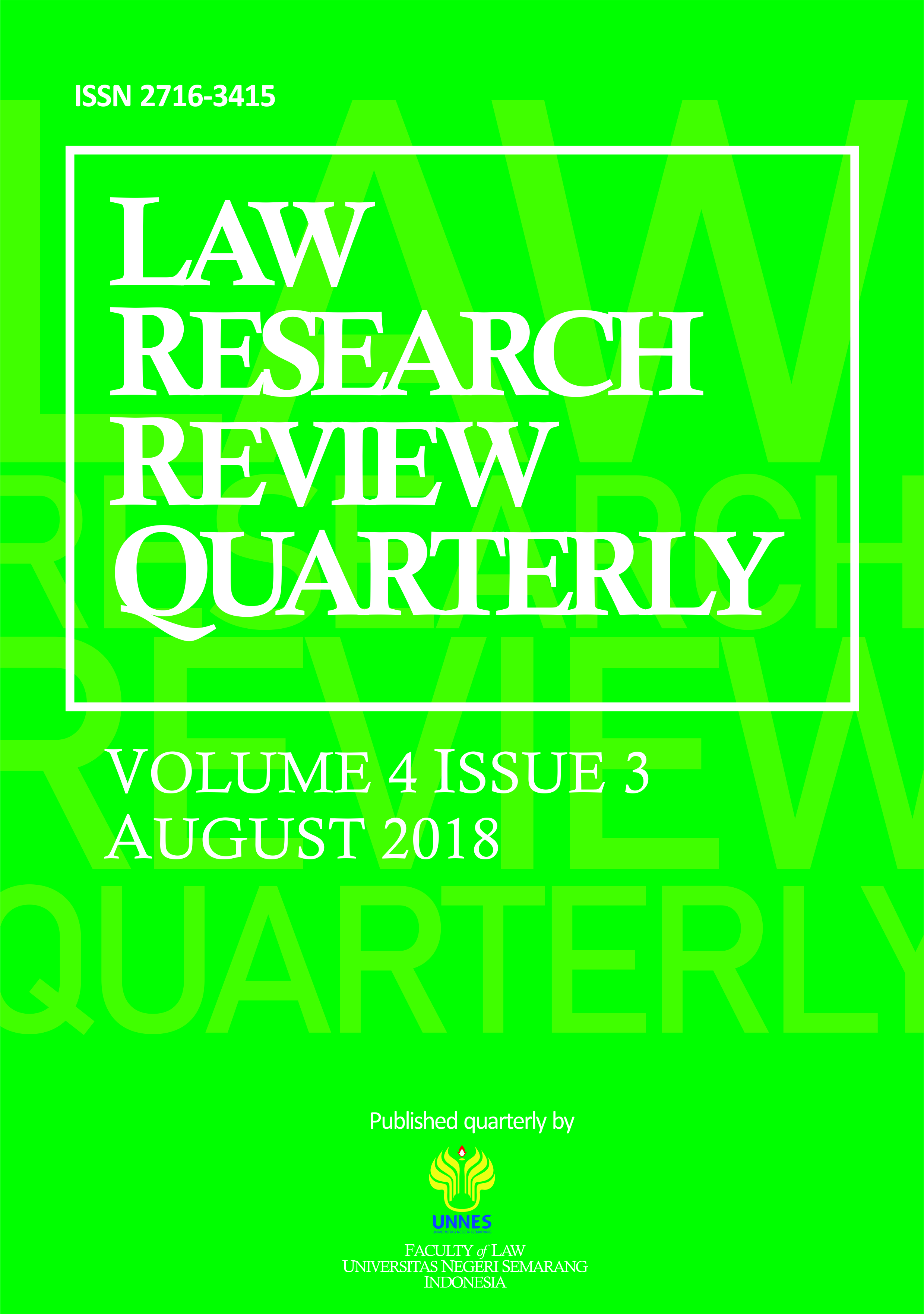Religious Dialectics In The Election Context As An Effort To Maintain Nation's Integrity
Main Article Content
Abstract
Elections are a manifestation of democracy that aims to directly elect heads of state, regional heads or representatives in parliament. Unfortunately, the implementation of elections often leaves various conflicts that arise in the community. Among the various issues that emerged were religious issues which returned to be the main issue in the Democratic Party event as well as in this year's presidential election. Some people consider that religion is only used as a political commodity to fulfill the interests of a group while others see that it is part of the implementation of religious values. As a result, horizontal conflict because and in the name of religion re-emerged which resulted in the nation's divisions difficult to avoid. Throwing issues and information involving religious elements to legitimize personal interests and groups became commonplace both online and offline with their respective approaches. This paper attempts to reconstruct the conception of religion in applying religious values ​​and teachings in the context of elections in Indonesia. Ethics, legal norms and religious norms should be used as references by not ignoring the principles of fair and fair elections. Religious dialectics through the embodiment of religious values ​​and teachings is truly an important instrument in the democratic process in Indonesia. In the end, the concept of democracy which has a faith accompanied by religious values ​​will be able to build and maintain the integrity of the nation in the framework of the Pancasila.
Article Details
All writings published in this journal are personal views of the authors and do not represent the views of this journal and the author's affiliated institutions. Author(s) are retain the copyrights of the Article. However, before publishing, it is required to obtain written confirmation from Author(s) in order to ensure the originality (Author Statement of Originality). The statement is to be signed by at least one of the authors who have obtained the assent of the co-author(s) where applicable.This work licensed under a Creative Commons Attribution-ShareAlike 4.0 International (CC BY-SA 4.0)
References
Abdurrahman, M. (2002). Dinamika Masyarakat Islam Dalam Wawasan Fikih. Bandung: Remaja Rosdakarya.
Azra, A. (2006). Bingkai Teologi Kerukunan Hidup Antarumat Beragama : Perspektif Islam. In W. Sairin (Ed.), Butir-Butir Pemikiran Kerukunan Umat Beragama Pilar Utama Kerukunan Berbangsa. Jakarta: BPK Gunung Mulia.
Budiardjo, M. (2008). Dasar-Dasar Ilmu Politik. Jakarta: PT. Gramedia Pustaka Utama.
Kaelan. (2004). Pendidikan Pancasila (VII). Yogyakarta: Paradigma.
MD, M. (1998). Politik Hukum di Indonesia. Jakarta: LP3ES.
Sadzali, M. (1993). Islam dan Tata Negara. Jakarta: UI Press.
Suaedy, A. (2007). Politisasi Agama dan Konflik Komunal. Jakarta: The Wahid Institute.
Ubaedillah, & Rozak, A. (2003). Pancasila, Demokrasi, HAM dan Masyarakat Madani (12th ed.). Jakarta: Kencana.
Wahid, A. (2007). Islam Kosmopolitan: Nilai-Nilai Indonesia dan Transformasi Kebudayaan. Jakarta: The Wahid Institute.
Jurnal
Adib, M., & Qomari, N. (2018). Arus Baru Politik Islam: Pluralisme, Kontestasi, dan Demokratisasi. Maqashid, 1(2), 18–33.
Dahlan, M. (2014). Hubungan Agama dan Negara di Indonesia. Analisis: Jurnal Studi Keislaman, 14(1), 1–28.
Ghazali, A. M. (2013). Teologi Kerukunan Beragama Dalam Islam (Studi Kasus Kerukunan Beragama di Indonesia). Analisis, XIII(2), 281–302.
Hadi, S. (2018). Relasi dan Reposisi Agama dan Negara: Tatapan Masa Depan Keberagamaan di Indonesia. Ri’ayah, 3(1), 12–3
Hasan, H. (2012). Islam, Negara dan Hak-Hak Minoritas di Indonesia. Analisis, XII(1), 1–18.
Ida, L. (2014). Election and Political Evil Ambition in The Indonesia’s Reformasi Era. Studia Ubb. Eurpaea2, LX(4), 179–203.
M, S. (2017). Dialektika syariat islam dan negara. Nuansa, X(1), 1–9.
Mahfud, M. (2018). Membumikan Konsep Etika Islam Abdurrahman Wahid Dalam Mengatasi Problematika Kelompok Minoritas di Indonesia. Tafaqquh: Jurnal Penelitian Dan Kajian Keislaman, 6(1), 42–60.
Mahmudah, S. (2018). Islamisme: Kemunculan Dan Perkembangannya Di Indonesia. Jurnal Aqlam, 3(1), 1–16.
Menchik, J. (2014). Productive intolerance: Godly nationalism in Indonesia. Comparative Studies in Society and History, 56(3), 591–621.
Prihantoro, H. A. (2017). Islam nusantara dan filsafat orientasi bangsa; dialektika modernitas beragama dalam negara berbudaya. Millah, XVI(2), 203–234.
Rohmah, B., Dwi, R., & Nugroho, P. (2018). Bantuan Dana Pembangunan Rumah Ibadah : Salah Satu Praktik Money Politics dalam Konteks Tindak Pidana Pemilu Perspektif Hukum Pidana dan Syariat Islam. Seminar Nasional Hukum, 4(2), 336–347.
Santoso, T. (2004). Pengaturan tindak pidana pemilu di empat negara asia tenggara. Jurnal Hukum Dan Pembangunan, 2(2), 129.
Suma, M. A. (2009). Fenomena Perkembangan Islam dan Hukum Islam di Indonesia. Jurnal Hukum Prioris, 2(2), 68–84.
Tahir, M. (2011). Demagogi dan kekerasan agama dalam sistem demokrasi di indonesia. Analisis, XI(1), 175–188.
Wright, M., Johnston, R., Citrin, J., & Soroka, S. (2017). Multiculturalism and Muslim Accommodation: Policy and Predisposition Across Three Political Contexts. Comparative Political Studies, 50(1), 102–132.
Peraturan Perundang-Undangan
Undang-Undang Dasar Negara Republik Indonesia Tahun 1945
Republik Indonesia. Undang-Undang Nomor 7 Tahun 2017 tentang Pemilihan Umum
